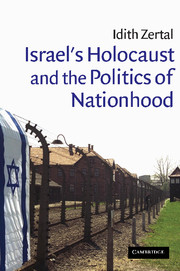Book contents
2 - Memory without rememberers
Published online by Cambridge University Press: 13 August 2009
Summary
The survivor of a man-made catastrophe is one of the signifiers and definers of the twentieth century, the icon of an era of mass horrors. A survivor or survivant is one who has lived through and beyond; beyond the threshold, beyond the border of life, who went on living after an event which was meant to end his life, after the annihilation of a mass of human beings, of whom he was part. In this sense, the survivor is a remnant from another world, someone who was at the core of the catastrophe, and came back, but left a very significant part of himself behind. The survivor or survivant is alive therefore, vivant in his own specific relation to both the dead and the living; he maintains an intense relationship – defined by an extreme situation and an ultimate trial – with the dead, as well as with ordinary, living human beings, from whom he is set apart because of his bond with the dead and with that event which the dead, unlike him, did not survive.
Survivorship, survival, being a remnant, are extreme situations, whose rarity and improbability define them. Life after a catastrophe is considered an act of grace, a gift, but this grace is two-edged, very often it is poisoned, and sometimes it can turn into a curse.
- Type
- Chapter
- Information
- Israel's Holocaust and the Politics of Nationhood , pp. 52 - 90Publisher: Cambridge University PressPrint publication year: 2005

